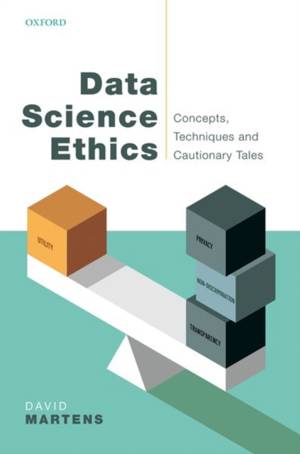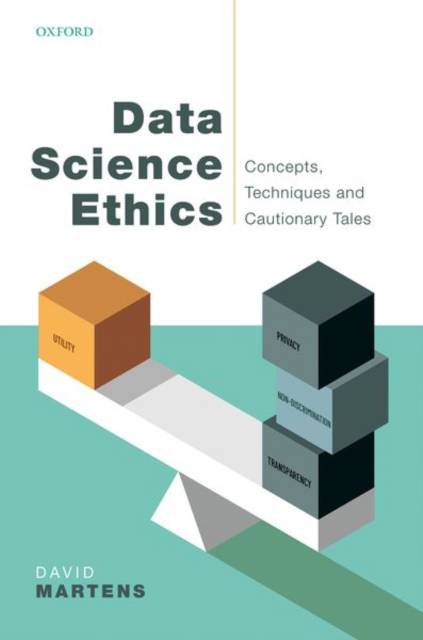
Nos liseuses Vivlio rencontrent actuellement des problèmes de synchronisation. Nous faisons tout notre possible pour résoudre ce problème le plus rapidement possible. Toutes nos excuses pour la gêne occasionnée !
- Retrait gratuit dans votre magasin Club
- 7.000.000 titres dans notre catalogue
- Payer en toute sécurité
- Toujours un magasin près de chez vous
Nos liseuses Vivlio rencontrent actuellement des problèmes de synchronisation. Nous faisons tout notre possible pour résoudre ce problème le plus rapidement possible. Toutes nos excuses pour la gêne occasionnée !
- Retrait gratuit dans votre magasin Club
- 7.000.0000 titres dans notre catalogue
- Payer en toute sécurité
- Toujours un magasin près de chez vous
92,45 €
+ 184 points
Format
Description
Data science ethics is all about what is right and wrong when conducting data science. Data science has so far been primarily used for positive outcomes for businesses and society. However, just as with any technology, data science has also come with some negative consequences: an increase of privacy invasion, data-driven discrimination against sensitive groups, and decision making by complex models without explanations. While data scientists and business managers are not inherently unethical, they are not trained to weigh the ethical considerations that come from their work - iData Science Ethics/i addresses this increasingly significant gap and highlights different concepts and techniques that aid understanding, ranging from k-anonymity and differential privacy to homomorphic encryption and zero-knowledge proofs to address privacy concerns, techniques to remove discrimination against sensitive groups, and various explainable AI techniques. Real-life cautionary tales further illustrate the importance and potential impact of data science ethics, including tales of racist bots, search censoring, government backdoors, and face recognition. The book is punctuated with structured exercises that provide hypothetical scenarios and ethical dilemmas for reflection that teach readers how to balance the ethical concerns and the utility of data.
Spécifications
Parties prenantes
- Auteur(s) :
- Editeur:
Contenu
- Nombre de pages :
- 272
- Langue:
- Anglais
Caractéristiques
- EAN:
- 9780192847263
- Date de parution :
- 24-06-22
- Format:
- Livre relié
- Format numérique:
- Genaaid
- Dimensions :
- 160 mm x 241 mm
- Poids :
- 589 g







